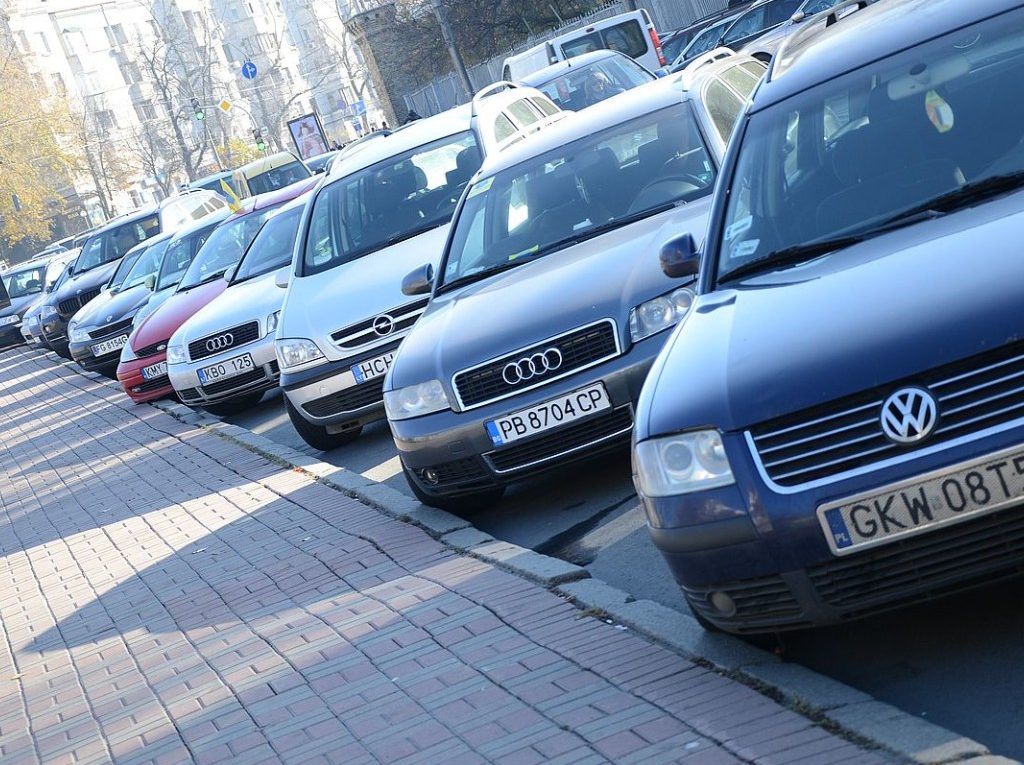The government did not extend the preferential conditions for the legalization of Euro cars, and general customs rules began to apply in the country. To clear a used car from the EU, you now have to pay in full.
The season of "discounts" from the authorities for customs clearance of cars with foreign registration is over in Ukraine.
It lasted from November 25, 2018, to February 23. During this grace period, according to the State Fiscal Service, 204,000 cars went through all the necessary procedures, with more than 130,000 of these cars being old Euro cars that were in Ukraine in the "temporary import" or "transit" regimes before the new rules were introduced.
The fiscal authorities also reported that the budget received UAH 12.8 billion from the preferential customs clearance of foreign cars, of which UAH 8 billion came from the customs clearance of old Euro cars. This amount includes UAH 3.8 billion from excise tax collection, which was subject to a 50% discount, UAH 700 million from customs duties, UAH 2.3 billion from VAT, and UAH 950 million from fees for exemption from administrative liability for violation of customs rules. This type of payment was made by the owners of 112 thousand cars.
According to Deputy Finance Minister Serhiy Verlanov, only very old cars were not registered during the grace period, as it was simply unprofitable to legalize them.
Now that the general rules at customs posts have come into effect, owners of Euro cars will face different prices. Thus, according to the adopted legislation, from February 23 to May 23, the excise tax is paid on 100%.
After May 23, when the transitional period for the new tax rules ends, Eurocar owners who ignore the customs clearance requirement will face heavy fines from both customs officers (up to UAH 170,000) and the police (up to UAH 17,000). At the same time, confiscation of the car is not excluded.
"As for those who will not use the right to clear their cars, we see two options: taking them out of Ukraine and selling them for spare parts," Verlanov said.
It should be noted that almost 640 thousand cars were in the country in the "temporary import" or "transit" regimes, many of them with violations of the terms of stay.
It can be assumed that the owners of more than 436 thousand Euro cars refused preferential customs clearance.
Yaroslav Zhalilo, President of the Center for Anti-Crisis Research, says that there would be no economic effect from extending the grace period, as the government had considered.
"The deadline was set, and those who were ready to clear their cars have already done so. I don't think that even if the deadline were extended, there would be any effect in economic terms," the economist said.
According to J. Zhalil, we should also not expect protests by "Euro car owners" in connection with the new rules.
"It is difficult to assess whether those who did not have time to clear their cars through customs will protest. In my opinion, this moment has already been exhausted, although it is clear that the pre-election period is characterized by the fact that any reason for discontent will be promoted," he said.
Viktor Medvid, director of the William Invest Expert consulting company, also does not believe in the protest potential of "Euro cars" that did not take advantage of customs "discounts."
"After the end of the preferential customs clearance period, the protests will be ineffective and absurd due to the lack of public support," the expert believes.
According to V. Medved, the law is the same for everyone, and therefore there can be no selective approach to this issue.
He also suggested that some easing of the tax burden could be made for "Euro cars" as an initiative of the new president.

Leave a Reply